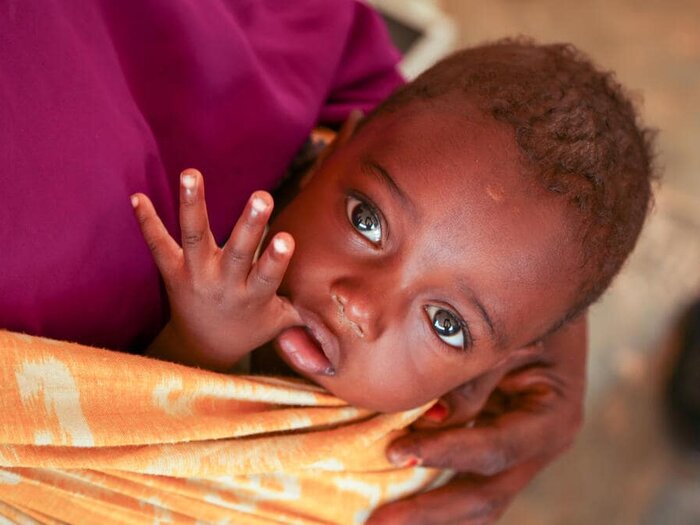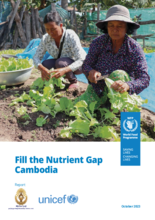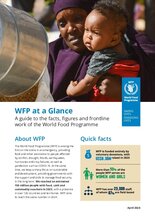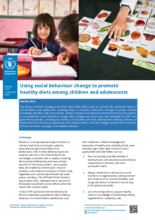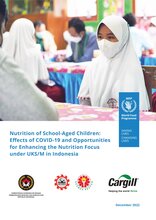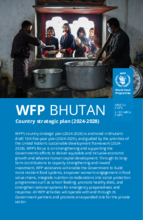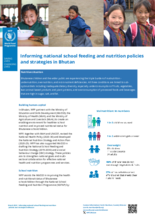Nutrition
- 15 million
- children under 5 reached with programmes to prevent and treat malnutrition
- Over 7 million
- pregnant and breastfeeding women reached with malnutrition treatment and prevention programmes
- 35 million
- beneficiaries reached with approaches to empower communities to access healthy diets
In 2023, in response to the global food and malnutrition crisis, and the UN Global Action Plan on Child Wasting, WFP is scaling up prevention and treatment of acute malnutrition. The focus is on children, and pregnant and breastfeeding women, in food-insecure contexts.
To get to zero hunger, food is not enough. The right nutrition at the right time can save and change lives, and build resilient and prosperous communities and nations.
This is why, as the leading organization providing food assistance to the world’s most vulnerable people, the World Food Programme (WFP) prioritizes nutrition as a core element of its work.
Despite significant progress over recent decades, poor nutrition remains a colossal and universal problem, with one in three people on the planet affected by some form of malnutrition. Undernutrition – inadequate energy or nutrients – continues to affect more than 150 million children worldwide, while rates of overweight and obesity are also rising in all countries. Conflict and natural disasters are exacerbating the problem.
Malnutrition at its extremes can be a matter of life and death, and in the long term can hold back people and countries, undermining economies and development.
Areas of work
-
Acute malnutrition
-
WFP brings its nutrition expertise to support the most vulnerable before, during and after humanitarian crises. We prioritize prevention of malnutrition as it reduces the human suffering and is the most effective path to long-lasting results. When children and women do suffer from acute malnutrition—inadequate nutrition leading to rapid weight loss, or ‘wasting’, —we provide treatment and link it to long-term care to prevent them from becoming malnourished again.
-
Chronic malnutrition
-
The first 1,000 days from conception to two years of age are pivotal in determining a child’s destiny. In this short timeframe, the damage done by poor nutrition can cause stunting – impaired development as a result of chronic malnutrition with irreversible damage to children’s bodies and brains. WFP therefore concentrates its efforts where they will have the most impact, targeting young children, pregnant women and breastfeeding mothers to prevent chronic malnutrition. The right nutrition in this window of opportunity will increase children’s chances of survival, build their immune systems and unlock their potential.
-
Vitamin and mineral deficiencies
-
Two billion people today are affected by deficiencies of essential vitamins and minerals (micronutrients), which can leave them susceptible to infectious diseases, impaired physical and mental development, reduced labour productivity and increased risk of premature death. WFP tackles micronutrient deficiencies with strategies like micronutrient powders (or ‘sprinkles’ of vitamins or minerals) which can be added to home-cooked meals, fortification of staple foods with nutrients, and education to promote diet diversity.
-
Overweight, obesity and the double burden of malnutrition
-
While seemingly unrelated problems, undernutrition and obesity and overweight (with their links to non-communicable diseases such as diabetes) stem from the same causes. More and more, they are being found side by side, affecting people in the same countries, communities and families. This double burden of malnutrition is providing unprecedented challenges to the governments we support. WFP is integrating these considerations into its work, such as promoting healthy eating and ensuring that programmes provide appropriate foods in the context of rising obesity rates.
Acute Wasting Appeal
Related topics
In focus
As child malnutrition mounts, UN agencies issue call to action
Story | 12 January 2023
High cost of healthy diet puts billions at risk of malnutrition, says food security report
Childhood, interrupted: Are we meeting the needs of adolescent mothers?
The Peru Paradox: Malnutrition in a gastronomic hub
WFP and Nutrition
Engaging Adolescents for Nutrition, Health and Sustainable Development
Fill the Nutrient Gap
Improving Nutrition through Rice Fortification
Publication | 17 October 2018

